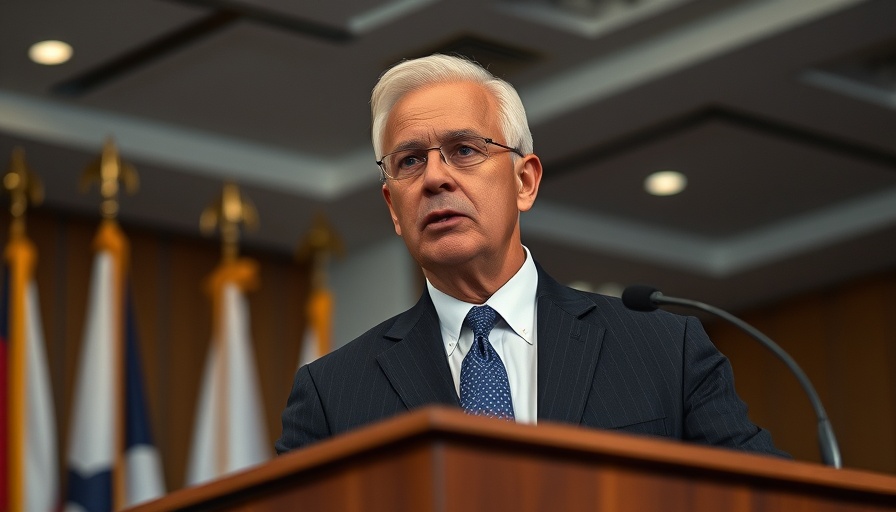
Embracing Education: Minnesota's Unique Back-to-School Tradition
In a state where cultural traditions run deep, the conversation around the timing of the school year is both lively and revealing. Mentioning school starting before the Minnesota State Fair is often met with raised eyebrows, as if challenging long-held beliefs about education's role in community life. Governor Tim Walz recently addressed this prevailing sentiment while highlighting the August return of students, emphasizing the accessibility of essential services like free breakfast and lunch for every child. This commitment to ensuring children return to classrooms with their basic needs met reflects a broader trend toward investing in education across the nation.
In 'Tim Walz: 'Minnesota Always Has Been And Always Will Be A Union State,' the governor emphasizes the significance of education and labor advocacy in Minnesota, prompting us to delve deeper into the implications of these insights.
Universal Access: Setting Precedents in Education Policy
In his remarks, Walz underscored Minnesota's strides in educational equity, noting the introduction of universal preschool access. This initiative not only alleviates financial burdens on families but also shapes early childhood development positively, preparing kids for their academic journeys ahead. Minnesota’s focus on making education a public good serves as a valuable model compared to ongoing discussions about educational systems elsewhere in the U.S.
Child Tax Credits: A Financial Safety Net for Minnesota Families
Moreover, Walz referenced Minnesota's provision of the most generous child tax credit in the country, an effort designed to support families financially. This approach is a significant move in helping lower-income households, offering them necessary additional resources that improve their children's educational experiences. As national conversations about tax reform evolve, states like Minnesota are showing clear benefits of targeted financial assistance, promoting education and wellbeing for families.
Generous Paid Family Medical Leave: A Game Changer for Working Parents
Perhaps one of the most notable announcements relates to paid family medical leave, scheduled to take effect in Minnesota on January 1. The paradigm shift towards generous family leave policies is a notable movement within America today, positioning Minnesota at the forefront of a national conversation about fostering family-friendly workplaces. This policy sets a standard that other states may be encouraged to follow, ensuring that families can prioritize health and wellness without jeopardizing financial stability.
The Heart of Union Values: Continuing the Legacy
Governor Walz's assertion that “Minnesota always has been and always will be a union state” is not mere rhetoric but a steadfast commitment echoing through the fabric of the state. The intertwining of unions with state identity embodies a dedication to workers' rights, workplace safety, and fair bargaining practices. In recent years, the visibility of unions has grown, underlined by recent labor strikes across different sectors of the U.S. In Minnesota, workers are assured their voices matter—a notion greatly resonating amidst national political news.
Looking Ahead: Minnesota as a Potential Model for the Nation
As federal legislation grapples with various social and economic challenges, Minnesota’s progressive stance on education, healthcare, and labor offers a potential roadmap. The lessons learned from Minnesota's initiatives could inspire similar reforms nationwide. Engaging communities and investing in people is foundational to bolstering education and labor—the very core of a thriving democracy.
Conclusion: Understanding Key Takeaways from Minnesota's Approach
The conversation ignited by Governor Walz during the back-to-school season is about far more than when students return to class; it’s a reflection of a state committed to championing education, supporting families, and valuing labor unions. As citizens and policymakers look to craft equitable solutions, Minnesota stands as testament to what can be achieved when communities prioritize collective well-being over divisive politics. The lessons from this discourse are not only crucial for Minnesotans but offer a wider context for American society at large.
If you're inspired by Minnesota’s approach to education and family policy, consider engaging with local advocacy groups or community forums to share insights and support similar initiatives in your own areas. Every voice matters in shaping our society for the better.
 Add Element
Add Element  Add Row
Add Row 



Write A Comment